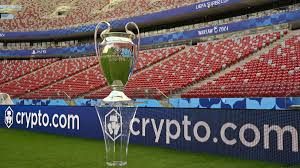October 17 – The gambling industry that has had its hooks into the clubs, players, and fans of the Premier League will have to face a future without their names and logos plastered over the front of jerseys (sleeve partnerships are exempt).
Since 1977, the English Football Association has let clubs sell off the retail space on the front of their jerseys. From local mom-and-pop businesses to multi-national corporations that space has been for sale, however since the proliferation of online gambling, that space has increasingly been taken for betting advertisement.
The top-flight of English football has the most eye-balls and from the start of the 2026-27 season, those eyes will no longer have to see gambling shoved down their throats. With a surge in gambling addiction, the discussion on how to deal with this issue has been ongoing with the Premier League, in a bid to avoid regulation, saying their clubs will voluntarily remove all betting sponsorships from the front of shirts.
With 11 of the 20 Premier League clubs currently featuring gambling sponsorship, who will fill that space and will they pay as much as the bookmakers were.
Professor Thilo Kunkel, of the Fox School of Business at Temple University in the U.S. city of Philadelphia, said: “We see massive competition in the financial and technology sector right now and again, like betting, some of those are perceived as less ethical and less desirable, particularly when it comes to some insurances or some financial services that are scrutinized on an ongoing basis.
There is no doubt that “betting is considered ‘less ethical’ than some other industries, added Kunkel. The same could be said for alcohol and fast food.
Chris Gowland, founder and managing director of sports marketing firm SMG believes that they’ll be a re-emergence of cryptocurrency to fill the gap.
“In terms of industries, I think we may see a potential re-emergence of crypto. There’s also more emphasis on airlines and tourism boards, with sports partnerships seen as a way to promote their destinations globally in key markets,” said Gowland.
Cryptocurrency website Coingecko.com says that 2024 saw a slight recovery in sports sponsorship by cryptocurrency firms, with 26 new sponsorships signed, while 16 deals from previous years remained active.
Recently Crypto.com has made its second football deal with a sponsorship for the UEFA Champions League, while BlockDAG sealed a $10 million deal with Borussia Dortmund.
Coingecko said that “while the volume of new sponsorships has not surpassed the 2021 levels, the uptick in activity suggests crypto firms are slowly re-entering the sports space.”
Many betting sites use bitcoin and cryptocurrencies to trade, so will the betting sponsorship boundaries become blurred again?
At the end of the day, regardless of who and what is on the shirt, most clubs gravitate to the largest offer, so expect commercial departments to be creative in finding different ways to bend the rules.
Contact the writer of this story, Nick Webster, at moc.l1745463845labto1745463845ofdlr1745463845owedi1745463845sni@o1745463845fni1745463845


